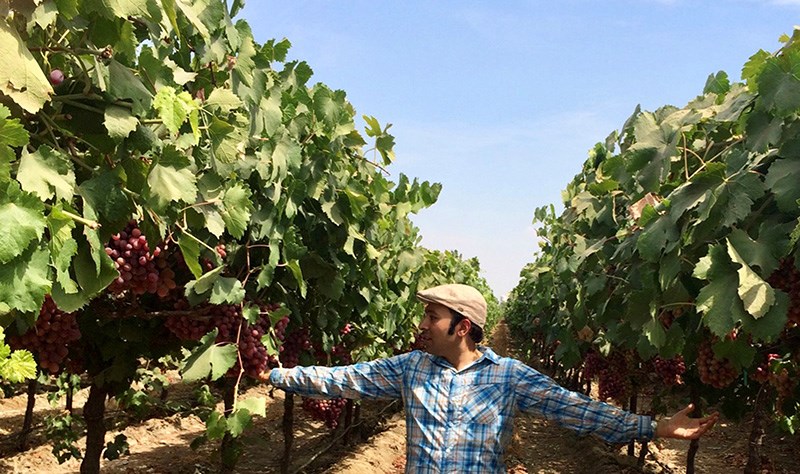Long after Vancouver’s Olympic village was transformed into an urban condo community and the speed skating ice at the Richmond Oval was boarded over for basketball courts, one of the most enduring legacies of the 2010 Winter Games may be how farmers protect crops from pests and disease.
And it all started because a law student from Port Moody got into a debate about bedbugs.
Karn Manhas, who grew up in Pleasantside and graduated from the International Baccalaureate program at Port Moody secondary school, was helping set up a law conference in downtown Vancouver in 2009 when the discussion occurred about the merits of the Olympic Games that the city was preparing to host the following year.
Manhas, who was studying law at UBC after he had already obtained a bachelor’s degree in biology and biotechnology at McGill University in Montreal — and after he served one term as a BC Liberal for Port Coquitlam — was all for the games. But his colleague said they often came with unintended consequences, like an infestation of bedbugs, as had occurred in Sydney after the Australian city hosted the Summer Games in 2000. The tiny, blood-sucking insects spread unchecked because, over the years, they’d become resistant to most chemical pesticides and natural compounds just weren’t up to the task.
Manhas was gobsmacked.
“It made no sense to me,” he said, adding the argument tweaked the curiosity of the biologist side of his brain.
That curiosity led to employment for 130 people and Manhas’ Vancouver-based biotech company, Terramera, is poised to grow even more with the recent injection of US$45 million from a pair of venture capital investment firms that specialize in food and agriculture.
Manhas said the money will further propel his company’s technology down a path to reduce the use of synthetic chemical pesticides by making them more efficient as well as improve the performance of natural products to protect organic farms. The investment, he said, “will be instrumental to fulfilling our mission of using technology to unlock the intelligence in nature, ensuring an Earth that thrives and provides for everyone.”
It’s a lofty ambition for a quest that first started taking shape in a lab that was more Breaking Bad than Silicon Valley that Manhas had cobbled together in the basement of the Port Coquitlam home where he was living at the time. In fact, he said, the assemblage of glass beakers, test tubes and pipes was so rudimentary, it raised the eyebrows of utility workers who had to access the basement when they were trying to repair a water main that had burst under the street out front.
Manhas didn't mind. He had taken his colleague’s assertion of an Olympic bed bug apocalypse as a challenge.
“I had my back up that this wasn’t possible,” he said, adding it was a similar motivation that had made him the youngest member of the BC Legislature in 2001, representing Coquitlam-Burke Mountain at the age of 24 and fresh out of McGill after he was told he didn’t have a chance of getting elected for the Liberal party against NDP incumbent Mike Farnworth.
Manhas’ research into the bedbug problem led him to neem oil, a natural extract from the fruit and seeds of an evergreen tree native to India, where his family is originally; there, he said, the tree is known as the “village pharmacy.”
In his basement lab, Manhas found spraying neem was only about 10% effective in controlling bedbugs but when he injected it into them and other insects he had collected, it was a 100% surefire killing compound.
“A lightbulb went off,” Manhas said. “Drug delivery — getting the right medicine into the right place — is a big area of science. And if you could have that happen with pesticides, could you get them to work more effectively?”
Of course, injecting individual bedbugs or other pests wasn’t a practical solution, so Manhas used his background in biology and biotechnology to look for answers in nature, where plants have evolved natural ways to fight off threats to their well-being. He developed a chemical formula called Actigate that could break through the armour of a bedbug or other pest to deliver the treatment more efficiently.
While Manhas said he originally developed the formula to help natural pesticides work better, discussions with investors for initial financing in 2016 convinced him his product could also have a positive impact if it were also integrated into treatments with synthetic chemicals because less would have to be used.
Manhas said biotechnologies like Actigate have the potential to make organic agriculture more viable and profitable for farmers while reducing the environmental harm caused by synthetic pesticides.
“The value of that is a more efficient system,” he said, adding that efficiency might just be able to make the agriculture industry more regenerative rather than degenerative, ensuring the longterm viability of soils and the health of crops they support.
“We’re in a really interesting time, to be able to use data and technology to solve some of the biggest problems we have.”



